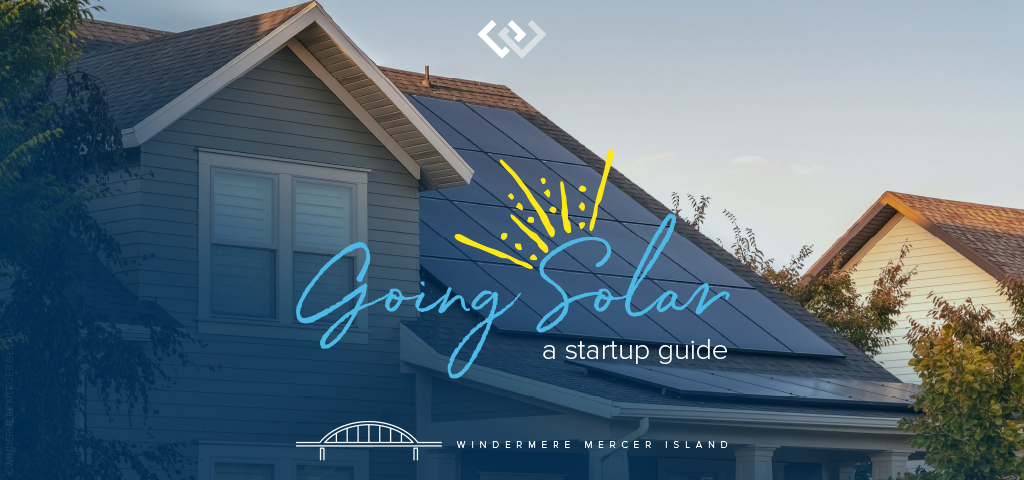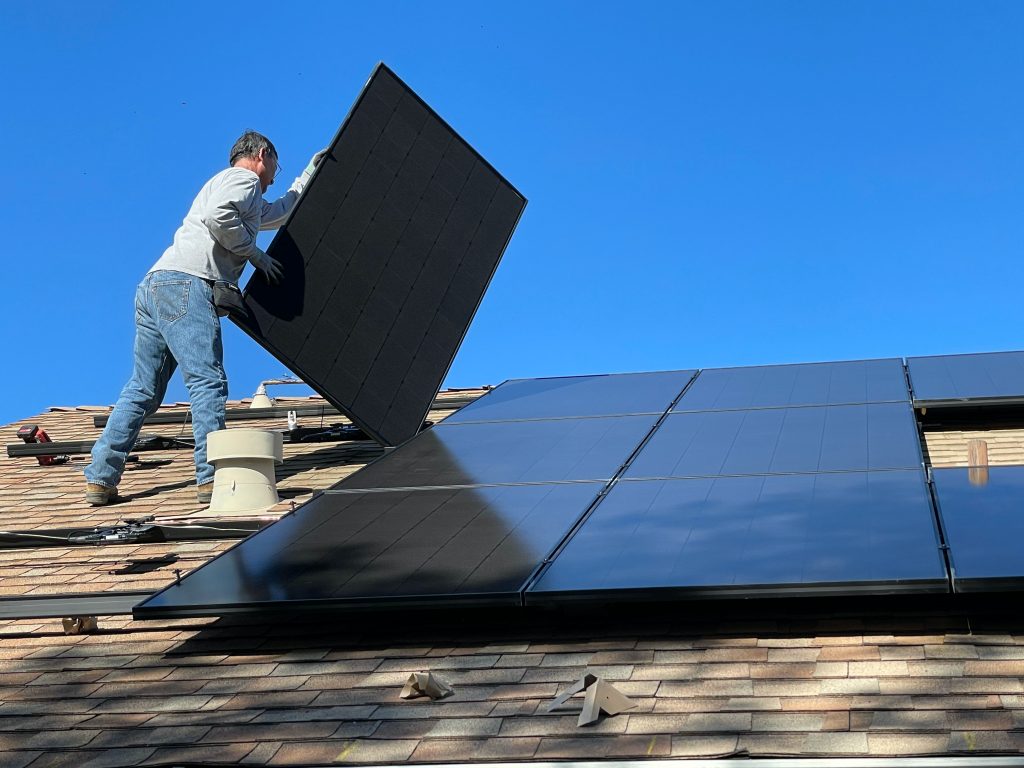5 Home Improvements That Will Boost Your Property Value

A home is the largest investment most people will make in their lifetime, so when it comes time to sell, homeowners often wonder what they can do to get the most return on their investment. Many have the misconception that remodeling is the way to go, but that isn’t always the case. Rather than going all-in on upgrading your home, you should know which home improvements are worth it, and which ones aren’t.
We’ve sifted through the research and come up with a quick list of five home improvements that’ll help buyers fall in love with your home when it comes time to sell.
1. Add a little curb appeal
Curb appeal is critical. As the name suggests, it’s the first thing buyers see when pulling up to the front of any home so it needs to be in nearly pristine condition.
Landscaping can go a long way for a minimal upfront investment. Six rounds of fertilizer and weed control will set you back about $415, but when it comes time to sell, you’ll see a return on investment (ROI) of about $900 according to a 2023 survey by the National Association of Realtors.
Other improvements you can easily make to your curb appeal include:
- Pressure wash the exterior
- Liven up your front door with a fresh coat of paint
- Replace hardware such as doorknobs and knockers
- Install updated house numbers
- Make your walkways pop with new greenery or flowers
- Plant a succulent garden
- Update your porch lights
- Add a little charm with window flower boxes
- Stage your porch
2. Convert your HVAC to an electric heat pump
According to the 2023 Cost vs. Value Remodeling Report, replacing an oil or gas furnace with an electric heat pump is one of the hottest trends (and offers an unusually high ROI of 104%). Their earth-friendly efficiency is especially appealing to younger buyers and those concerned about climate change. Additionally, they offer summertime cooling, which is a big bonus in the PNW given our recent hot and smoky summers!
3. Refresh your kitchen
While major kitchen renovations are costly and typically have low ROI, a little elbow grease and modest budget can give you big bang for your buck (see our article on simple kitchen makeover ideas).
Here are some smaller updates to boost your home’s value:
- Clean
- Organize your pantry
- Use a little Murphy Oil Soap and hot water on all of your cabinets
- Polish cabinets with Howard Feed-In-Wax
- Tighten all hinges
- Clean grout and tiles
- Shine your sinks and hardware until you can see your face in it
- Deep clean your stove
- Give your kitchen a fresh coat of neutral paint
- Update lighting fixtures, and replace light bulbs
- Add new and trendy door hardware to your cabinets
- Consider replacing your countertops with a hard surface like quartz or quartzite
- Upgrade your appliances
4. Go green
Today’s younger generations are embracing eco-friendly living, and millennials are leading the pack. According to the National Association of Realtors’ 2022 Home Buyer and Seller Generational Trends Report, millennials make up the largest segment of buyers, holding strong at 43 percent of all buyers.
When it comes to attracting buyers who are willing to pay top dollar, going green makes sense. A Nielson study found that, of more than 30,000 millennials surveyed, 66 percent are willing to shell out more cash for conservation-conscious, sustainable products. Depending on where you live, consider installing solar panels, wind turbines, and eco-friendly water systems.
No matter where you live, attic insulation replacement and weather stripping are safe bets. Attic replacement costs can vary but typically have a good ROI. Weather stripping costs about $350 if you hire a professional, but you can easily DIY for a fraction of that cost.
5. Install hardwood floors
Installing or upgrading hardwood floors is pretty failsafe as most buyers love it. Ninety-nine percent of real estate agents agree that homes with hardwood floors are easier to sell, and 90 percent of agents say that they sell for a higher sale price, according to the National Wood Flooring Association. Similarly, a survey by the National Association of Home Builders (NAHB) found that wood flooring was among the top 10 home features most desired by home buyers.
When it comes time to sell, I will help you get the highest possible ROI for your home. I can connect you with tried-and-true contractors, suggest strategic upgrades, and help you develop the right pricing plan based on up-to-the-minute market analysis. Reach out for a complimentary home value consultation.
© Copyright 2023, Windermere Real Estate/Mercer Island.
Adapted from an article that originally appeared on the Windermere blog November 12, 2018. Written by: Sarah Stilo with HomeLight.
Cost vs. Value data ©2023 Zonda Media, a Delaware corporation. Complete data from the 2023 Cost vs. Value Report can be downloaded free at www.costvsvalue.com.
We earn the trust and loyalty of our brokers and clients by doing real estate exceptionally well. The leader in our market, we deliver client-focused service in an authentic, collaborative, and transparent manner and with the unmatched knowledge and expertise that comes from decades of experience.
Your Guide to Going Solar

To reduce your carbon footprint, increase your household’s sustainability, and add value to your property, solar power may be right for you. Understanding how solar works and how to maximize its benefits are key first steps in your journey to becoming a solar energy-producing household.
How does solar power work?
The technology that turns your house into a solar energy-harnessing hub is called photovoltaics, more commonly known as PV. PV works by fielding direct sunlight and absorbing its photons into the solar panels’ cells, which then creates electricity that provides energy for your home. This energy reduces your home’s output of carbon and other pollutants, which translates to cleaner air and water.
With the sun as your power source, the majority of the power generation occurs during the middle of the day, making summer the highest producing season. Rooftop panels work best when they are exposed to sunlight, free of shade or shadow from nearby trees or structures. Given the sun’s east-to-west path, south-facing roofs are best-suited for maximizing your solar power. To see if your roof is set up for success, consult a mapping service or solar calculator to establish your roof’s suitability. If your roof isn’t up to standard, you can explore alternatives such as ground mount solar installations and community solar gardens.
Components of Solar Power
- Solar Panels: Capture the sun’s energy
- Inverter: Converts the sun’s energy to a form that powers devices
- Racking: The foundation that holds your solar system in place
- Batteries: Store the energy generated
- Charge Controller: Controls how quickly the batteries charge

Photo source: Pexels. Photo Credit: William Mead.
What are the benefits of solar power?
Sustainability: Having a renewable source of energy coursing through your home reduces your household’s carbon footprint by converting a significant portion of your home’s energy to solar power.
Save Money: How much money you save by going solar depends largely on how much energy your household consumes and the energy output of your solar panels. The cost of solar power has steadily decreased over time, so you are more likely to save as time goes on. For information on state incentives and tax breaks, explore what options apply to your home by visiting DSIRE (Database of State Incentives for Renewables & Efficiency®).
Utilities: Whether your utility company charges a flat rate for electricity or charges variable rates throughout the day based on electricity production—i.e., higher rates in the afternoon, lower rates at night—solar power offsets the price you are charged for electricity. It becomes even more valuable during those higher-rate periods or during seasonal fluctuations in utilities costs.
Sell Solar Power Back: Homeowners can sell their solar energy back to utilities through “Net-metering” plans. When your power generation rate is greater than your household’s consumption rate, the end result on your electric bill is a net energy consumption. Refer to DSIRE for region-specific regulations and policies.
Home Value: Studies have shown that buyers are willing to pay more for homes with solar panels. The Appraisal Journal, published by the industry-leading appraisers association The Appraisal Institute, found that homes with solar PV systems increased their home value by $20 for every $1 saved on utility bills annually.
Although the right solar solution looks different for each household, what remains true across the board is that solar power creates more sustainable homes while increasing home value. Taking all this information into your solar power plans will help to improve your home’s renewable energy output and reduce your carbon footprint.

Article originally appeared on the Windermere blog, May 1, 2023, by Sandy Dodge.

 Facebook
Facebook
 X
X
 Pinterest
Pinterest
 Copy Link
Copy Link